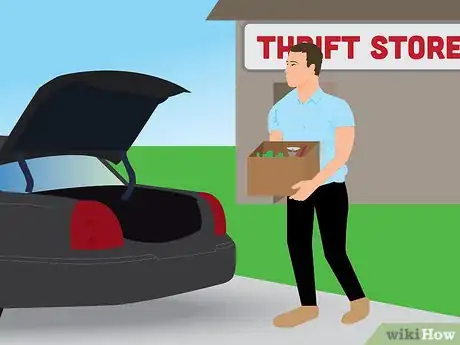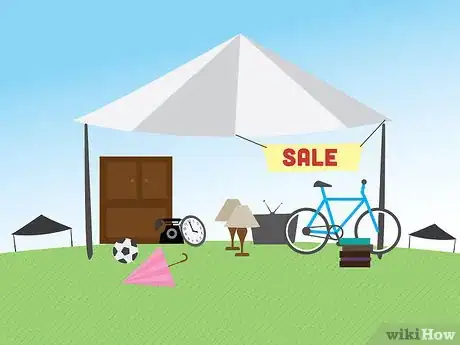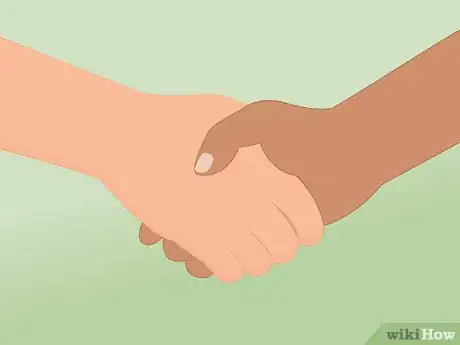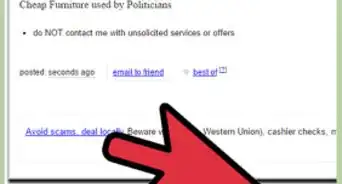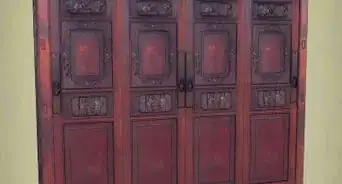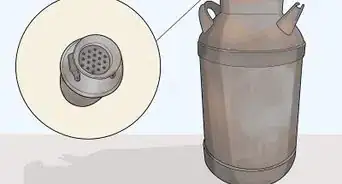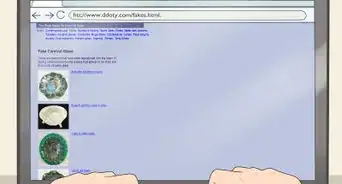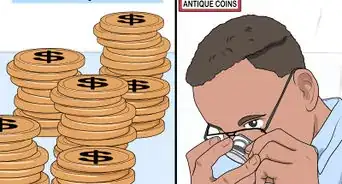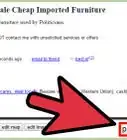This article was co-authored by wikiHow Staff. Our trained team of editors and researchers validate articles for accuracy and comprehensiveness. wikiHow's Content Management Team carefully monitors the work from our editorial staff to ensure that each article is backed by trusted research and meets our high quality standards.
There are 9 references cited in this article, which can be found at the bottom of the page.
This article has been viewed 62,167 times.
Learn more...
Becoming an antiques dealer can be a rewarding and even profitable career. It's great for history lovers, those who enjoy rummaging for bargains, and those with a keen eye for details. Whether you want to sell them on the side, or make it your career, dealing in antiques can be a great rewarding past-time.
Steps
Getting Started in Dealing Antiques
-
1Find your own niche. If you want to enter into the world of being an antiques dealer, the competition can be thick. You'll want to balance working with antiques that you know will yield profit with antiques you are passionate and knowledgeable about. While many dealers have a wide array of offerings, to be most effective, you'll need to find a niche specialization. The most common, though not exclusive, types of antiques that dealers work with include:
- Furniture
- Rugs
- Sterling Silverware
- Pottery
- Jewelry
- Coins
- Toys
- Artwork
- Glass work
- Automobiles
-
2Take your finances into consideration when finding a niche. In order to become an antiques dealer, you'll need to build up an inventory. While your interests and expertise should play a big role in how you decide what you want to acquire and sell, your start-up funds will also play a big role. You can take out small business loans to acquire inventory but this is not a sound strategy for antiques. You'll be better off taking your time and using your own money you are able to spare from life expenses.
- For example, if you want to sell antique cars, the initial investment will be considerably larger than if you are looking to sell vintage toys or rugs. You can get small-business loans to cover inventory acquisition, but this can be risky because market prices fluctuate so greatly, quickly undercutting your profit margins. Also, many antique dealers gain their inventories over time through smart, economical purchases, so a large start-up capital is not as necessary.[1]
Advertisement -
3Gain expertise in the field. If you want to become an antiques dealer, you're going to need to learn how to recognize good buys and their potential for re-sale. There is no actual license for antique appraising, however, some locations may have certain regulations to familiarize yourself with, such as laws about antiquities or selling antiques made of regulated goods like ivory. Many times the difference between a viable antique dealer and those that fail is their ability to research and find the best deals.[2]
- Network. Talk to local antiques dealers, those at conferences and workshops, and even fellow shoppers. This is a great way to get tips of the trade and get real-world education. Most antique dealers are open to sharing their experiences and knowledge.
- Buy and read books on antiques. You should use a price book for accurate market prices. However, antique books can help you recognize authentic products from frauds. Find reputable book publishers and producers that have been churning out works on antiques for years.
-
4Join antiques dealer associations. This is a great way to stay abreast in the industry, network, and constantly learn. Some major associations include: Antiques Dealers' Association, The National Antique and Art Dealers Association of America, The Antiques & Collectibles National Association. These can offer avenues to build your inventory, second opinions on appraisals, leads on finding certain and coveted items and more. You will likely have to pay membership dues, but the payoffs are well worth it.[3]
- There should also be regional and state associations, too. These will not be as large but could offer meetings that are closer to you and help you understand your regional market.[4]
-
5Undergo formal education and training. The Appraiser's Association offers a number of programs throughout the country that can serve as education for budding dealers. Some of the most prominent examples include the Comprehensive Appraisal Studies Program (CASP) offers an intensive program every year that meets five days a week. Also, major auction houses like Sotheby's and Christy's offer training ever year.[5]
- Connoisseurship Programs are offered yearly throughout the year through the Appraiser's Association and offers lectures and seminars, complete with certificates for completion. This is offered in a circuit each year in various parts of the country.
- Recorded programs are used to provide education that is not limited to a certain area or classroom setting. This can provide many of the lecture series available online or through DVD sets.
- You can also focus on a college degree that will help you, such as one that specializes in fine arts, art history, or history. A big part of being an antiques dealer is being able to understand the providence of the items you will acquire, their context and craftsmanship. Knowing about history can help have a more discerning eye.
- Conferences are a great way to learn and network. The most prominent antique dealer conference is held nationally each year by the Appraiser's Association. Here you can begin to learn what it takes to buy and sell your own antiques by getting the inside track of values and selling trends in the industry. You can also use this as a place to network and gain continuing education.[6]
-
6Gain hands-on experience through internships and apprenticeships. These are usually not paid positions, but if there is an antiques shop in your area that has been around and successful for a while, you can approach the person in charge about the opportunity to work under them. This is a great way to see inside the industry without having the same investments and risks.
Starting Your Career as an Antiques Dealer
-
1Find a job in the antiques industry. When you decide you want to work as an antiques dealer, you'll need to find an entry-level path to get started. You may not be able to have your own business right away, as this takes money and experience, but you can choose jobs that will help set you up for success later down the road.
- Get a job in antiques shop as a general worker.
- Work at an auction house as a porter, clerk, cataloger, valuer or auctioneer.
-
2Build your inventory through thrift shopping. Once you've gained some experience working in antiques and the knowledge you'll need to succeed, you'll need to start building your stock to sell. Knowing where to find antiques and what to look for is an important part of being a successful dealer. Between shopping around, Craigslist browsing, and garage sale hunting, you'll have plenty of opportunities; and always try to be there first.[7]
- Look through rummage sales. These can held by churches, individuals looking to get rid of things, or organizations. Looking through these objects can reveal some diamonds in the rough.
- Keep an eye out for estate sales. These are estate liquidations held by family members. These are usually ran by estate houses that tend to price the items at market value, or even more expensive, so finding bargains isn't real common. However, sometimes as the sale comes to a close the estate house will look to move the rest of their inventory and slash prices.
-
3Use markets and shops to build your inventory. While looking through garage sales and second hand goods can make for a great way to build inventory, looking through the inventories of fellow antique dealers can also yield great finds.
- Flea markets. While flea markets used to be more like garage sales, they've become a place to buy new and imported goods. Check online for event calendars, local ads, and other antiques publications to see where flea markets are popping up. You can haggle with vendors usually to try and get the best deal possible.
-
4Shop antiques shops and shows. Many people think it is impossible to make a profit buying items that are already listed by other dealers, but you can find great under the radar items sometimes. For example, sometimes a dealer may be selling something outside their area of expertise and they may underprice the item, or lower prices to empty inventory or make a quick sale.
- Craigslist and online auction sites like eBay are also fantastic place to find these sales by reputable antique dealers, as well as for sale by owner ads. As with anything in line you'll want to exercise caution that you're getting exactly what you think, and safely.
Turning Your Passion Into a Career
-
1Find a profitable market. There are so many antiquities considered to be valuable that you should start by finding a few categories that appeal to you, or preferably, antiques which you already have some familiarity with. Gather a thorough understanding of timelines associated with that particular vertical items (i.e. pianos, guitars, coffee tables, china, decanters, matchbox cars, you name it...) and find out which items in that genre are valuable, to whom they are valuable, and why they are valued.
- Stay current in what is trendy. Visit online forums, talk to consumers, and pick the brain of successful dealers. This will keep your sales cutting edge.
-
2Look to turn a profit. Networking and using the above search methods are all important in locating antiques and trying to turn a profit. All of these routes should lead to cost-effective sales.
- Keep in mind standards qualities. Much like diamonds, the subtle variances in condition, wear, and restorations can mean the difference between hundreds, and hundreds of thousands of dollars! The biggest key to success is knowing what you have or what you've found. This will make it so your products are valuable and more likely to yield you a profit.
- A good price guide is very important. This will help you know not only what you are buying, but also the fair market price when you go to resell.Some of the most famous are Miller's Antiques and Kovels’ Antiques and Collectibles Price Guide.[8]
- You can also use your knowledge and skills in antiques to help make extra money on the side that will, in turn, help you gain funds. Many antique dealers do side work like: restoration, upholstery, insurance services, and estate appraisals. Even if you aren't selling products right away, you can make money by appraising antiques for others with the right knowledge and reputation.[9]
-
3Decide your method of dealing. There is no need for a brick and mortar business, unless you have an abundance of wealth, antiques, and a client base. You will need to pay rent, electricity and a number of overheads that will cut into your profit margin. Selling and turning a profit is all about the art of negotiation and knowing your market.[10]
- Consignment is also a great way to make a profit and get a solid footing in the antique industry. You will work on behalf of individuals who are attempting to sell items.You will give them part of the profit but will not typically need to come up with up-front capital to acquire this inventory.
-
4Deal at shows or flea markets. You can sell your inventory at a more low-cost venue like a flea market or antique show. This will only require you to pay the cost of renting a table. You may have to deal with hagglers, but if you choose a venue with other antique dealers you may find a great clientele base.
- Think about selling online. One advantage of selling in modern times is the availability of online markets like E-Bay. List your products online to reach a wider audience. Invest in a good camera so that you can provide high quality, detailed photos of your products.
-
5Market yourself for success. Advertising can really help market your products, increase your visibility, and build a successful business. While newspaper and magazine advertising can be useful, this can cost thousands of dollars long-term and they are far from the only way to build up a customer base.
- Develop a mailing list. Sometimes antique shops or dealers will have client mailing lists they may be willing to share. If you can get your hands on one of these, you can develop a mailing list of customers to send ads and newsletters.
- Create a strong internet presence. You will need a professional looking website, but also ways to direct traffic to it. You may have to hire a SEO (search engine optimization) specialist that will make it so your page isn't buried in Google search results. If you are one of the first sites that come up when antique dealers are searched for in your area, this can be a major boon to business.
-
6Try to keep a short turnaround for products. Try to move items between 90-180 days after purchase. If you have merchandise in your stock that is over 180 days old, you should reduce the price to get rid of it before adding to your stock any further. This is a good way to not get bogged down with an overstocked inventory. Each of those items sitting in stock are profit you're not making and an investment sitting stagnant. Keep your inventory fresh and profits moving.[11]
Community Q&A
-
QuestionDo I need a license to be a dealer in SC?
 Community AnswerYes, you should get a license.
Community AnswerYes, you should get a license.
References
- ↑ http://www.buyingandsellingantiques.org/how-to-make-money-selling-antiques/
- ↑ https://nationalcareersservice.direct.gov.uk/advice/planning/jobprofiles/Pages/antiquedealer.aspx
- ↑ http://www.officialusa.com/stateguides/yellowpages/antiques/associations.html
- ↑ http://www.officialusa.com/stateguides/yellowpages/antiques/associations.html
- ↑ http://www.appraisersassociation.org/index.cfm?fuseaction=Page.ViewPage&pageId=757
- ↑ http://www.appraisersassociation.org/index.cfm?fuseaction=page.viewpage&pageid=905
- ↑ http://www.wisebread.com/reselling-antiques-the-five-principles-of-power-picking
- ↑ http://www.buyingandsellingantiques.org/top-5-antiques-price-guides/
- ↑ http://www.buyingandsellingantiques.org/how-to-make-money-selling-antiques/







